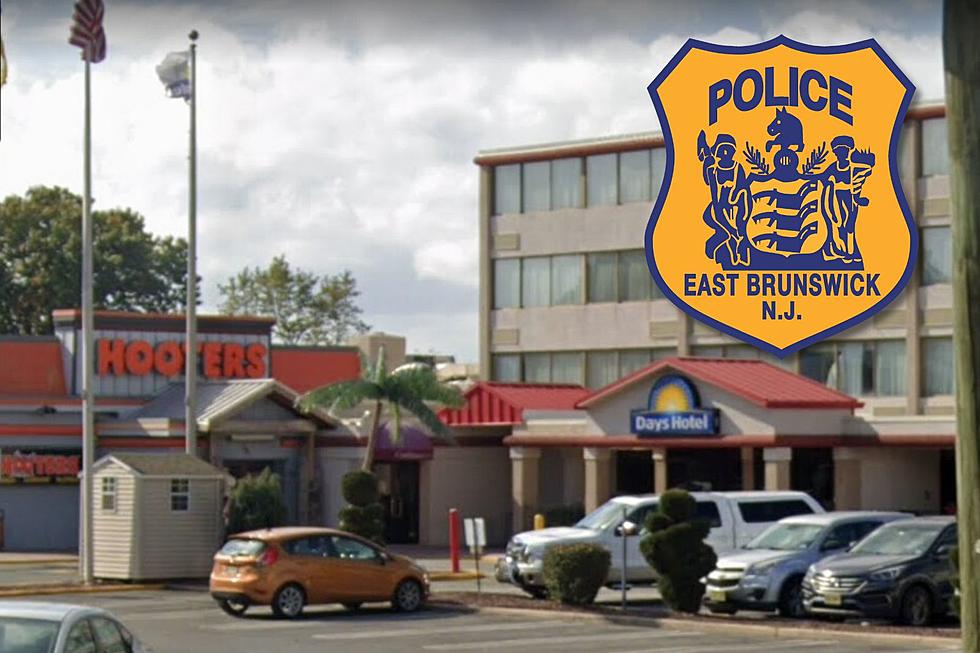
Jax’s cancer can have no symptoms: What you need to know
Here at New Jersey 101.5, we're always glad to welcome East Brunswick native and former American Idol finalist Jax into the studio. She brings an energy and positivity that's hard to match.
And it's that upbeat attitude that's helped her through a difficult time — several months ago, she revealed to New Jersey 101.5's Bill Spadea Monday, she was diagnosed with thyroid cancer.
Do a little googling, and you'll be left with the impression that if you've got to get a cancer, thyroid cancer is the one to get. And there's some truth to that — it's more treatable than most cancers, and for most forms, the survival rates are encouraging.
But it's still cancer. It's still deadly. And as with all cancers, early diagnosis and treatment can make all the difference in the world.
Some key facts about thyroid cancer:
There's a 1 in 100 chance you'll get it
According to the National Cancer Institute, about 1.1 percent of men and women will be diagnosed with thyroid cancer at some point during their lifetime.
Women are at much greater risk
According to the American Cancer Society, about 64,000 people will be diagnosed with thyroid cancer in the United States this year. Of those, nearly 50,000 will be women.
And about 2,000 people will die from thyroid cancer this year.
It's rare in children
According to the ACS, only about 2 percent of thyroid cancer cases are diagnosed in children or teens. Most cases manifest between ages 20 and 55. Jax turned 20 this year.
Survival rate: It depends
As cancer goes, the survival rate is pretty good. There are several kinds of thyroid cancer, but the 5-year survival rate is nearly 100 percent when it's caught during stage I, regardless of the kind. Stage II rates are nearly as good.
Papillary thyroid cancer — the most common kind — has about a 50 percent 5-year survival rate when first diagnosed in stage IV, according to the ACS.
The much rarer anaplastic thyroid cancer (accounting for just about 1 percent of all cases) — always considered stage IV — has a much lower 5-year survival rate of just 7 percent.
The good news: Thyroid cancer is among the more treatable forms of cancer. The bad news: Recurrence rates can be as much as 30 percent, and may happen decades after an initial diagnosis, according to ThyCa, the Thyroid Cancer Survivors' Association.
You can have thyroid cancer with no symptoms
That's particularly true if the cancer is early in its development. But the ACS says the following are possible signs of thyroid cancer, and anyone experiencing them should seek medical care:
- A lump in the neck, sometimes growing quickly
- Swelling in the neck
- Pain in the front of the neck, sometimes going up to the ears
- Hoarseness or other voice changes that do not go away
- Trouble swallowing
- Trouble breathing
- A constant cough that is not due to a cold
Diagnoses are on the rise
According to several medical journals, diagnoses of thyroid cancer have more than doubled since the 1970s. But that's likely due to improved detection methods — ultrasounds (like the one that found Jax's cancer) help find several cases that may previously have gone undiagnosed indefinitely. Definitive diagnoses are generally made after biopsies.
Blood tests can also detect thyroid irregularities, but, like ultrasounds, they're not generally recommended in routine care unless a person is considered to be at a high risk already, according to the ACS.
It may cost you your entire thyroid — and that's manageable
Nearly every case of thyroid cancer should be treated with surgery, often removing some or all of the thyroid along with tumors, according to the ACS. That's a significant adjustment for the body — the thyroid controls the body's sensitivity to hormones, regulates protein synthesis, and controls the body's use of energy sources.
But pills are available to replace those functions — any patients whose thyroids are entirely or largely removed will generally have to take such pills daily, according to the ACS.
Surgery isn't without its risks
It never is. Among the potential side effects of thyroid surgery are temporary or permanent hoarseness or loss of voice, the ACS says (Jax said her grandfather, who also had thyroid cancer, never got his voice back — she worried about the same happening to her). That may be a result of the larynx becoming irritated or of nerves to the larynx or vocal chords being damaged.
There's also a risk of damage to the parathyroid glands, which help regulate blood calcium levels). That could cause muscle spasms, numbness or tingling, the ACS says.
You may need more than surgery alone
Treatment for thyroid cancer may include radioactive iodine treatment, thyroid hormone therapy, external beam radiation therapy, chemotherapy or other targeted therapy, according to the ACS.
Follow-up care is important
The ACS notes that for some people, thyroid cancer may never go away entirely, and may require ongoing chemotherapy, radiation therapy or other treatments.
In the more common papillary and follicular cancer, radioactive iodine scans can help find any remaining signs of the cancer. Tests for TSH and thyroglobulin, which is made by thyroid tissue, should show very low levels if any at all after a thyroid removal — if those levels begin to rise, it could be a sign of returning cancer and may require furter testing or treatment.
More from New Jersey 101.5:
More From New Jersey 101.5 FM









